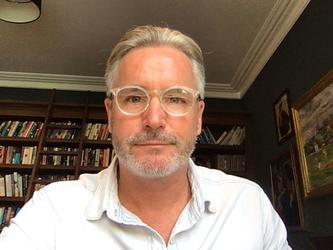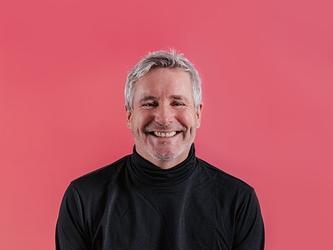Steve Phillips, CEO, Zappi: ‘We can be victims of change or try to orchestrate it’
In 2020, Zappi split into two leadership teams focused on innovation and operations. What was the thinking behind that?
A large proportion of the leadership team were the original founder members of either Zappi or Intellection [the companies merged in 2016 ] and as the company grew there was a requirement to bring in new people, voices, levels of expertise and experience. The old leadership team was heavily product and software and not a lot of client knowledge and client market understanding, and so we needed to rebalance that.
Some people want to manage large teams and get the best out of people and some want to lead by writing great software and building features or products. We had quite a frustrating time when we were trying to do new management skills with an old leadership team. The fundamental thing was for us to look at building a management team for the size of company we were at the time, not based on the history of where we’d come from.
Why take that approach of having two rotating staff members joining the futures team for six-month periods?
If you end up having a talking shop of senior people in the business, you’re not going to get new ideas, or new perspectives. Anyone in the business will and does argue with me, it just doesn’t matter, we’re no respecter of position, we’re a respecter of opinion, ideas and data.
How has the pandemic changed the way Zappi operates?
On a practical level, it’s changed a lot of what we do in that we’ve all become remote-first. We have multiple offices, but three key areas – Boston, Cape Town and London. We were already a distributed management team and workforce, so it wasn’t a complete change.
What’s been more interesting is how extreme we want to take it. We’ve had debates about getting rid of all our offices, keeping them, hiring people irrespective of geography. You worry about culture – we have a strong culture and high levels of tenure for a tech company. Suddenly we’ve had probably 50 people join since Covid, and they’re joining without meeting people – that’s a big change. We’re trying to get them to a point where they interact and enjoy the culture in the same way people did when they were in the office, and of course that’s harder.
One of the things we said early was ‘Zoom for one, Zoom for all’. One of the problems that we always used to have was if you had two people in a meeting room and one person on Zoom, that person wasn’t very effective, so we would say if anyone’s on Zoom in a meeting, everyone should be on Zoom.
How has the role of the insights professional changed in the last 18 months?
We should be surfing on a wave of massive increase in the importance of data – every organisation is talking about data and customers. So, we should be essential. What happened to quite a few of our clients is that when Covid hit, there was this big panic and they stopped doing anything, and then there was a growing realisation that this was not the time to stop doing research but a time to double down on it.
Then people were thinking about whether what they’ve done in the past has worked, and maybe it hasn’t, so they rethink. It became a time to question everything, and when you’re questioning everything, market research should be one of the key ways that you answer those questions. So, it’s given a lot of impetus to the industry to remind the organisations they work for how important they are.
When Zappi was founded, it was with the aim of ‘automating the processes behind market research’. Is the industry there yet?
No, but it’s getting there. We would describe ourselves as full end to end automation but even we provide consulting when needed, whereas I’d still say 90% of the industry is unautomated or is a collection of bits of automation. But I also believe in exponentials. If the industry is 10% automated now, I suspect it will be 50% automated in three-five years.
Zappi works with several clients on an insights alliance to share best practice. Why is industry collaboration important at the moment?
When you’re creating new ways of working, finding new information and trying to embed that insight into organisations, you can try and do it on your own but it’s really hard. Clients are all facing the same challenges, and these are new challenges, and if we were just doing the same thing that’s always been done you probably wouldn’t need that collaboration.
There are multiple winds piling in different directions at the moment. Every single client organisation is trying to digitise across the board – operations, finance function, business modelling, marketing – it’s not like insight is immune from those winds of change. So, there is pressure on the insights department to digitise along with the rest of the business.
Some of our clients feel that pressure and are asking for help, and some of them are saying within their organisations: ‘I want insight to digitise before marketing and operations’ – they’ve been at the forefront of taking an analogue, old-school insights department and digitising it as a function. I think that’s really exciting – for Zappi and also for the industry – we have to create new solutions and ways of working because they are going to change and so we can either be victims of that change or we can try and orchestrate that change.
What are your current priorities?
I spend most of my time thinking about where the company needs to be 18, 24 or 36 months away – a lot of that is product and where we want the platform to be, what types of analytics we want to be able to do with the data we have. Also, data integration will be a core part of what we do. We’ve built an API and we’re integrated with several other suppliers and end clients. We’re trying to figure out what role we play, in some sense, in the CMO (chief marketing officer) tech stack. There’ll be an Adobe system, a Salesforce system, but what’s the role of consumer insight in that system?
One of the scariest things I’ve seen in a long time is we were looking at this and we downloaded a file that had 73 infographics of different companies’ CMO tech stacks. Of those 73, two or three had piped-in experience management data but not one of them included any consumer insight. That is really scary for our industry but it’s also an enormous opportunity, so that’s where I’d like to think that we will be positioned in the next three years.
Are there particular areas you’re looking to partner more in?
A lot of market research happens before the launch of a product or service. As soon as a product, service or advert launches, the brand will have a huge amount of data coming through on effectiveness, etc, but pre-launch, they’ve got very little. That’s what consumer insight typically does, and that data needs to be able to predict the data streams post-launch.
It’s integrating those data systems that makes our data significantly more powerful than any data at the moment. When I say our data, I mean our industry. To me, that significantly elevates the power and importance of the consumer insights industry.
You are the chair of the MRS sustainability council. What role should insights companies be playing in this space?
I’m a big believer in progress over perfection and what the council and MRS have been very good at is developing a baseline pledge that says ‘this is the basics that we all should do’ – we should all sign up to being carbon neutral. There’s no real excuse. You can offset some of that, and you can reduce. So, it’s about measuring, reducing and offsetting.
I would like to see this as the start of a movement to becoming more broadly sustainable, but you don’t start off with something hard, you start off with something relatively basic. I would like every company in the UK to sign up the pledge and then use that to start building new ideas around sustainability – that may be the way we work with clients, the types of questions we ask, or collecting more information about consumer opinions that we share as an industry.
I think we should build more sustainability into the macro industry across our interactions with clients and consumers.
What’s the biggest challenge facing the research industry?
The understanding and adoption of technology. As an industry, we’ve always been great at getting really interesting data and then analysing and telling the stories about that data. The problem the industry has – and is beginning to solve – is that the process of creating and analysing and storytelling about that data simply did not work at the pace that business works at, and quite often at the price that business is prepared to pay.
If you’re a business, it’s very rare that you make a significant business decision without input from consumers, but if the meeting is tomorrow and you’ve got to make a decision, and there’s no customer data, you’ll probably make the decision anyway. So, we have to make sure our data and insight is in that meeting – that’s a critical thing that we’ve got to solve and the only route to solving that is technology.

We hope you enjoyed this article.
Research Live is published by MRS.
The Market Research Society (MRS) exists to promote and protect the research sector, showcasing how research delivers impact for businesses and government.
Members of MRS enjoy many benefits including tailoured policy guidance, discounts on training and conferences, and access to member-only content.
For example, there's an archive of winning case studies from over a decade of MRS Awards.
Find out more about the benefits of joining MRS here.














0 Comments